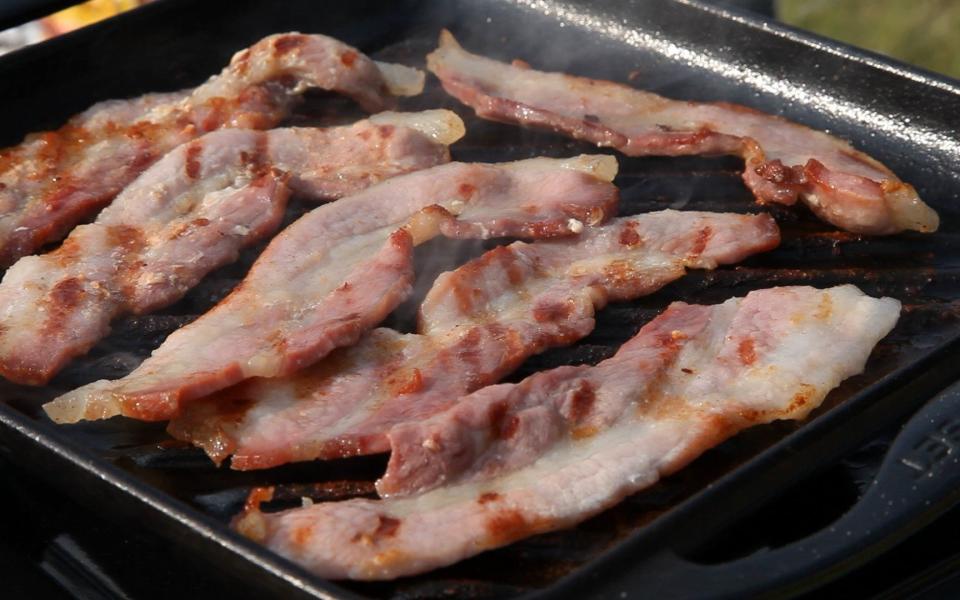Danish Crown to build £100m gammon plant in UK despite Brexit red tape

Danish Crown, the European pork producer, is to build a £100m gammon and bacon factory in the UK despite facing a mountain of post-Brexit red tape.
The 30,500 square metre factory, in Rochdale, Greater Manchester, will be completely powered by renewable energy and will create 300 jobs once it is operational. It will use heat recovered from its utility systems instead of conventional heating to heat its office space and provide hot water.
The investment comes despite the company grappling with mounting levels of bureaucracy in the wake of Brexit.
Jais Valeur, chief executive of Danish Crown, said: “The UK is now a 'third country' in line with the US or Asian markets when we export.”
Mr Valeur said Danish Crown was being required to produce a “heavy set of documents for each and every consignment or load into the UK”, amounting to 33,000 additional pages per year.
Thanks to its size, Danish Crown was not struggling, Mr Valeur said, but he suggested smaller businesses faced an “impossible” level of paperwork.
Danish Crown’s new factory, which is its first UK production facility in three years, will have the capacity to produce more than 900 tonnes of bacon and gammon per week when it is fully operational. It is expected to be up and running in the second half of 2023.
The company is also hoping to crack down on food waste by using bacon offcuts in other products such as sausages.
Despite the issues caused by Brexit red tape, Mr Valeur said he had confidence in the UK’s prospects. He added: “There’s a lot of headwinds but I am proud to be able to create some jobs here.”
The UK has the highest consumption per capita of bacon in Europe at 3kg a year, significantly higher than other European countries such as Denmark which has the second highest consumption at around 1.9kg, according to data experts Kantar.
More households are opting for cheaper cuts of meat such as gammon and bacon, Mr Valeur added, as the cost-of-living crisis piles pressure on finances.
He said: “The UK consumer is under tremendous pressure due to inflation, but they are reacting to that by going more into private label and discounters - the Danish pork is better suited for that.”
However he said the business had been forced to raise prices due to surging energy costs and would have to again.
Mr Valeur said: “There will be price increases. But we hope the energy costs are levelling off and then things will hopefully start to normalise.”
Surging feed and energy costs have hit UK pig farmers hard, forcing many to cull livestock. According to the Agriculture & Horticulture Development Board, the industry has lost approximately £737m in sales over the past two years.
Bacon sales in the UK have dipped 3.7pc over the 12 weeks to October 30, while sausage sales fell 3.3pc compared to the same period last year, according to Kantar.
However, Kantar said the cost of living crisis meant cheaper cuts were continuing to do relatively well as shoppers sought to save money.

 Yahoo Finance
Yahoo Finance 